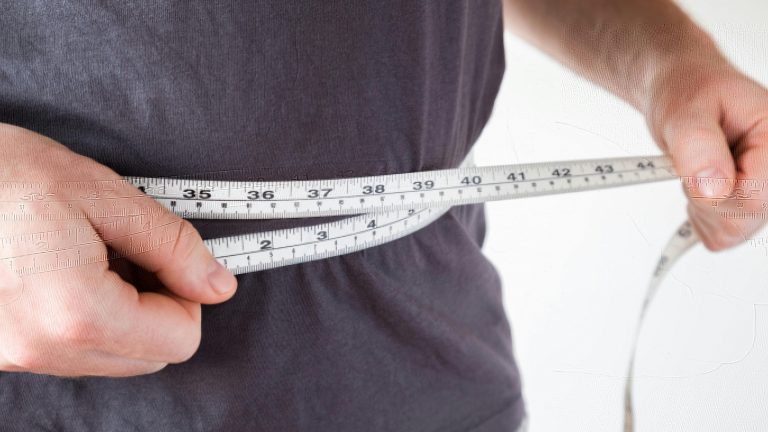Why does weight loss rebound? Doctor: the body “remembers” that you have been fat, pay attention to a few points
When many people try to lose weight, they will encounter a common problem: the weight lost after a period of time and quietly come back, even heavier than the original. This phenomenon is known as “weight rebound”, which not only makes many people lose confidence in weight loss, but also puts many people into deep…
When many people try to lose weight, they will encounter a common problem: the weight lost after a period of time and quietly come back, even heavier than the original. This phenomenon is known as “weight rebound”, which not only makes many people lose confidence in weight loss, but also puts many people into deep confusion. Why is it that our struggle to lose weight is not sustainable? In fact, there is a complex physiological mechanism behind weight loss rebound, which is closely related to our body’s adaptability, hormone levels, metabolic changes and so on.

Why does our body always activate the “energy-saving” state?
During the slimming process, weight loss has a direct impact on an individual’s basal energy expenditure rate. The body’s resting energy expenditure rate reflects the amount of calories burned without movement, which is the minimum supply of calories needed to sustain basic life activities. Studies have shown that as weight declines, the body spontaneously lowers its resting energy expenditure rate to match the reduced caloric intake. This adaptive response is in response to survival challenges such as food shortages, and thus this mechanism was critical to the survival of our ancestors during the course of evolution.
Modern humans do not face food shortages, but this physiological response is still present. During weight loss, if you cut back on your calorie intake by modifying your diet, your body will turn on an energy-saving state and use fewer calories, resulting in a gradual slowdown in weight loss. To complicate matters further, when weight is regained, the body’s metabolic rate remains low, resulting in a vicious cycle of weight gain even when energy intake is restored to its original level.
The balance of endocrine substances in the body is in a state of instability
Weight loss is not only about the balance of energy income and expenditure, it is closely related to the changes of a variety of hormones. It has been found that weight loss significantly affects hormones related to appetite regulation, especially the “hunger hormone” – gastric starvation hormone and the “satiety hormone” – leptin. –leptin.
Leptin’s core function is to suppress hunger and assist us in experiencing a state of satiety, while conversely, when the body feels hungry, gastrulation peptide levels are elevated, which triggers the urge to eat. As we lose weight, Leptin levels decrease and gastrulation peptide levels increase, prompting us to feel a more urgent urge to eat. This change in hormone levels makes hunger more pronounced during weight loss, which in turn affects long-term weight loss adherence. Over time, a sustained increase in appetite may induce an overeating habit, eventually leading to another weight gain situation.
Weight fluctuations likewise have a corresponding effect on another key blood sugar regulating hormone, insulin. Insulin’s main function is to regulate blood sugar, and when body fat is lost, insulin’s sensitivity is reduced, which tends to trigger fat accumulation, which is one of the reasons why fat tends to re-accumulate more readily than muscle when weight is regained.
The role of “accumulative memory” in the body.
The reason for weight loss rebound can also be explained from a biological point of view. It has been found that the body has a “memory” effect, i.e., the body will adjust to past weight changes accordingly. Especially after a long period of obesity, the body will take the higher weight as the “normal” state for metabolic regulation. This means that even if you achieve your weight loss goal, the body will tend to maintain the previous overweight condition and weight regain will be unavoidable.
This phenomenon is known as “fat memory”, refers to the weight loss, fat tissue will not be completely restored to the state before weight loss, but will maintain a certain “memory”, making it easier to lose weight after weight rebound. U.S. scientists have conducted a study, found that long-term obese people in the weight loss after weight maintenance rate is low, rebound rate is high, indicating that the adipose tissue on the weight of the “memory” role is very significant.
Long-existing overweight phenomenon will lead to changes in the number and size of fat cells. When you are overweight, the adipose tissue will increase, and when you try to lose weight, these adipose tissues will not disappear without a trace, they will turn to become smaller. This means that when you regain the weight after losing it, these already existing fat cells are more likely to expand again, leading to a rebound.
How to break the rebound dilemma?
In the face of the weight loss rebound dilemma, we should adopt a more scientific and sustainable approach to deal with it, ensuring long-term weight management rather than pursuing quick weight loss results. The following suggestions can help you effectively avoid rebound:
Do not resort to excessive food restriction and cultivate a sensible dietary pattern. Instead of blindly pursuing quick weight loss, reduce fat accumulation through a balanced diet. Regulate calorie intake, but do not cut down excessively, in order to safeguard the nutritional balance of the body and prevent drastic endocrine changes.
Elevate muscle building to accelerate the growth of basal metabolic level. Elevating the difficulty of resistance exercises and strengthening the effect of muscle building can significantly accelerate a large jump in basal metabolic rate. Muscle tissue consumes more energy, so increasing muscle mass can help you burn fat more efficiently and maintain a higher metabolic rate.
Consistently practice regular fitness habits. A combination of cardio and strength training not only helps with weight loss, but also improves your body’s overall health. Adopting a lifestyle of regular exercise not only controls weight, but also improves physical fitness and optimizes emotional state, helping to alleviate potential psychological burdens on the weight loss journey.
Shape a positive mental state. It is extremely important to maintain a positive and uplifting state of mind on your weight loss journey. Accept your occasional rebound and don’t let it get you down. Gradually adjust your habits and incorporate healthy eating and exercise into your daily life, rather than viewing weight loss as a temporary task.
Behind the weight loss rebound is a complex physiological mechanism, hormonal changes and the body’s “memory” effect, however, this does not mean that weight loss can not be sustained. Through scientific weight loss methods, reasonable diet control, moderate exercise and a positive mindset, you can break through the predicament of weight loss rebound and maintain your ideal weight. Keep in mind that weight loss is not limited to cosmetic improvements, but is centered on achieving sustained physical and mental well-being as well as enhanced quality of life. The process of losing weight can be challenging, but every persistent effort brings rewards. Believe in yourself, the road ahead is full of light and anticipation!




